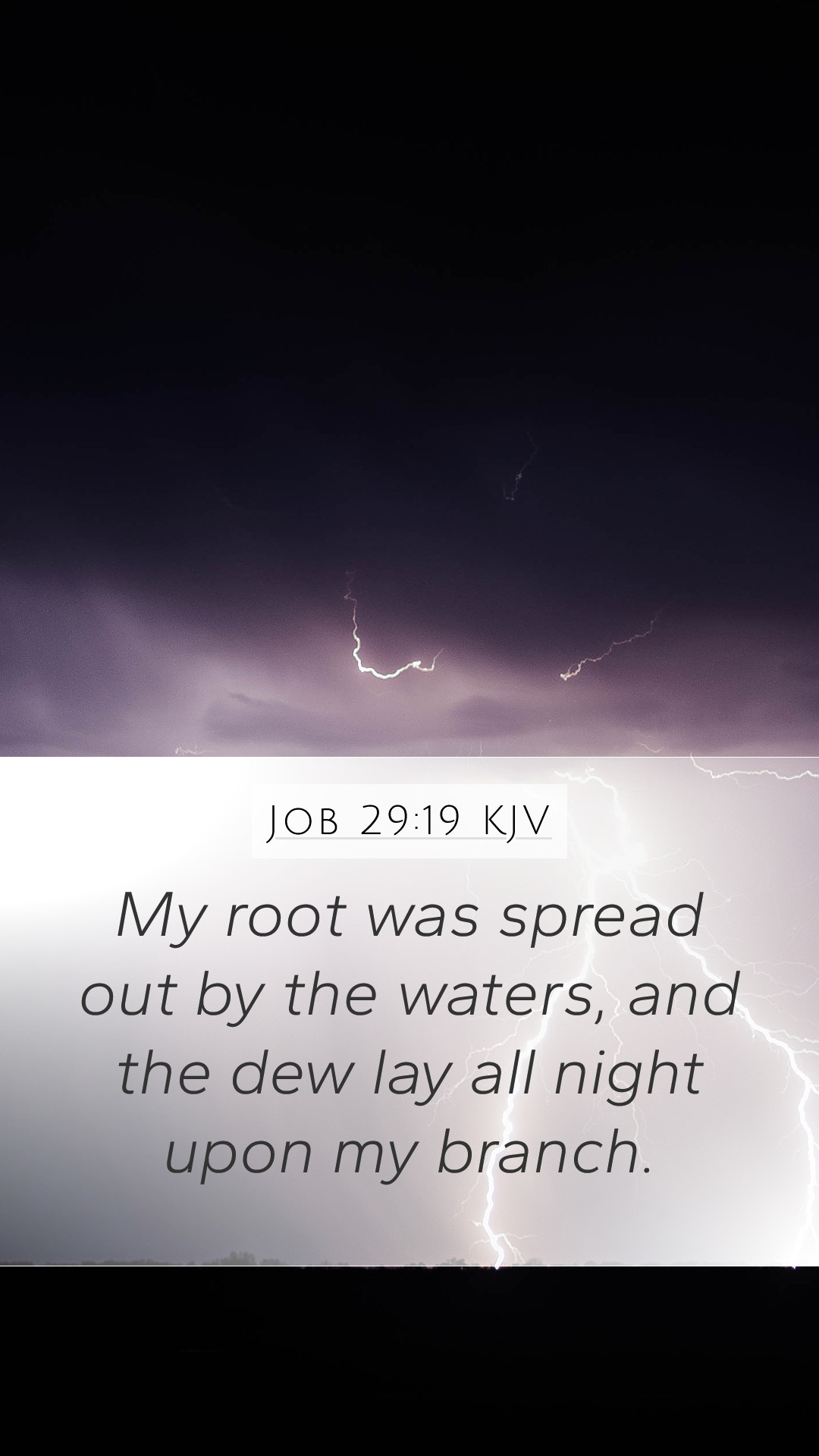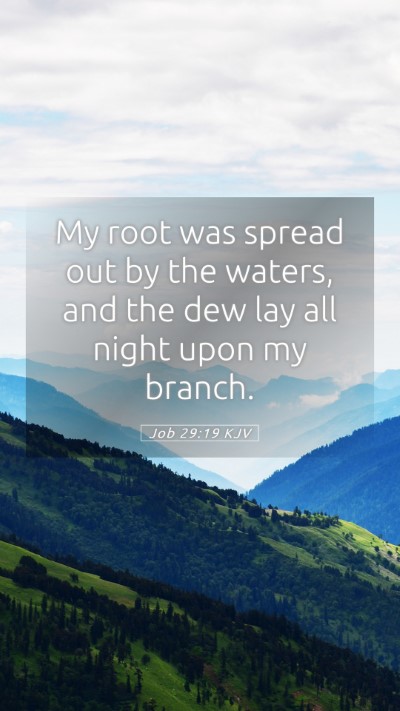Old Testament
Genesis Exodus Leviticus Numbers Deuteronomy Joshua Judges Ruth 1 Samuel 2 Samuel 1 Kings 2 Kings 1 Chronicles 2 Chronicles Ezra Nehemiah Esther Job Psalms Proverbs Ecclesiastes Song of Solomon Isaiah Jeremiah Lamentations Ezekiel Daniel Hosea Joel Amos Obadiah Jonah Micah Nahum Habakkuk Zephaniah Haggai Zechariah MalachiJob 29:19 Meaning
What is the meaning of Job 29:19?
My root was spread out by the waters, and the dew lay all night upon my branch.
Job 29:19 Bible Verse Meaning
Bible Verse Meaning and Interpretation of Job 29:19
Job 29:19: “My root is spread out to the waters, and the dew lies all night on my branch.”
Overview of Job 29:19
This verse serves as part of Job's reflection on his past, representing a time of prosperity and connection with God's blessings. The imagery of roots and branches highlights stability and growth, indicating a rich and fruitful life aligned with divine favor.
Bible Verse Commentary
-
Matthew Henry's Commentary:
Matthew Henry emphasizes the metaphoric nature of this verse, explaining that Job likens himself to a tree that thrives by the water's side. This imagery conveys spiritual nourishment and the vitality that comes from a close relationship with God. The dew symbolizes God's gentle and sustaining grace at night, illustrating His care during the believer's trials.
-
Albert Barnes' Notes:
Barnes notes that the imagery of roots and dew is indicative of prosperity and security. The "root" refers to the strength and stability that Job once felt in his life, thriving under God's provision. This verse reflects Job's longing for the earlier days when he experienced divine blessings and enjoyed the fruit of his righteousness.
-
Adam Clarke's Commentary:
Clarke provides insight into the agricultural symbolism within the verse, indicating that Job's root represents not just sustenance but a thriving lineage. The dew, a sign of divine favor, nurtures the branches, suggesting Job's descendants would have flourished had his past state of flourishing continued. Job laments the change from his past blessing to his present suffering.
Understanding Scripture: Insights and Applications
This verse can be understood as a metaphor for spiritual life and its dependency on God's grace. Job's lamentation teaches readers about the importance of remaining rooted in faith despite adversities, evoking the significance of prayer and reliance on divine sustenance.
Key Themes:
- Spiritual Nourishment: Just like a plant needs water, believers need God's grace to flourish in life.
- Finding Stability in Trials: The roots imply stability, essential for believers navigating through times of suffering.
- The Role of Heritage: The mention of branches symbolizes both personal and familial growth rooted in righteousness.
Cross References
- Psalm 1:3: “And he shall be like a tree planted by the rivers of water, that brings forth his fruit in his season; his leaf also shall not wither; and whatsoever he does shall prosper.”
- Jeremiah 17:8: “For he shall be as a tree planted by the waters, and that spreads out her roots by the river, and shall not see when heat comes, but her leaf shall be green; and shall not be careful in the year of drought, neither shall cease from yielding fruit.”
- Isaiah 61:3: “To appoint unto them that mourn in Zion, to give unto them beauty for ashes, the oil of joy for mourning, the garment of praise for the spirit of heaviness; that they might be called trees of righteousness, the planting of the LORD, that he might be glorified.”
Conclusion
In conclusion, Job 29:19 provides rich imagery for understanding the blessings of a life connected to God. It invites readers to reflect on their relationship with the Divine and the sustenance that comes from faith. By exploring the meanings and interpretations derived from esteemed commentaries, one can gain valuable insights applicable in both personal faith and collective Bible study lessons.


